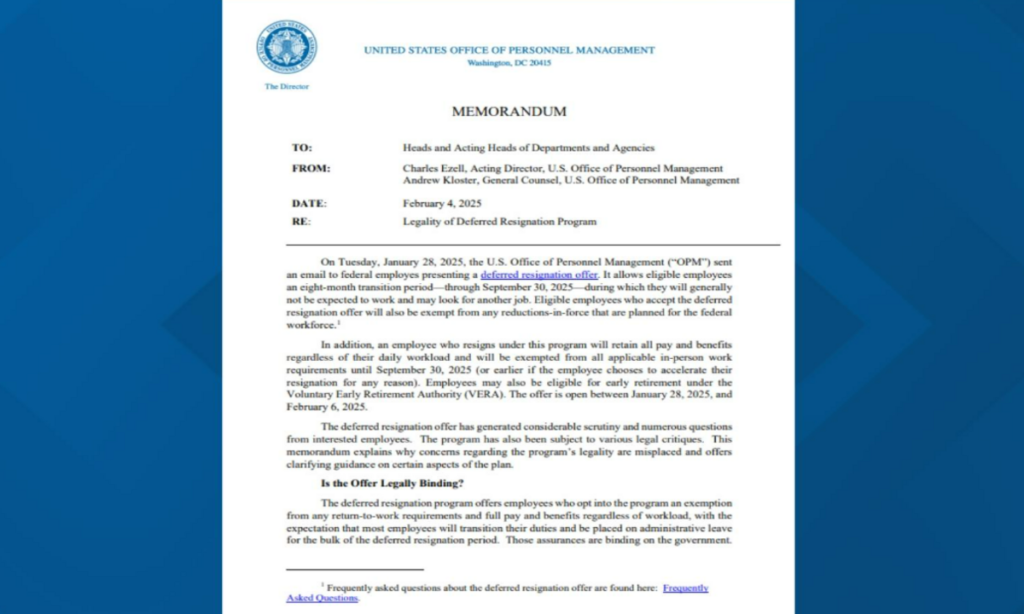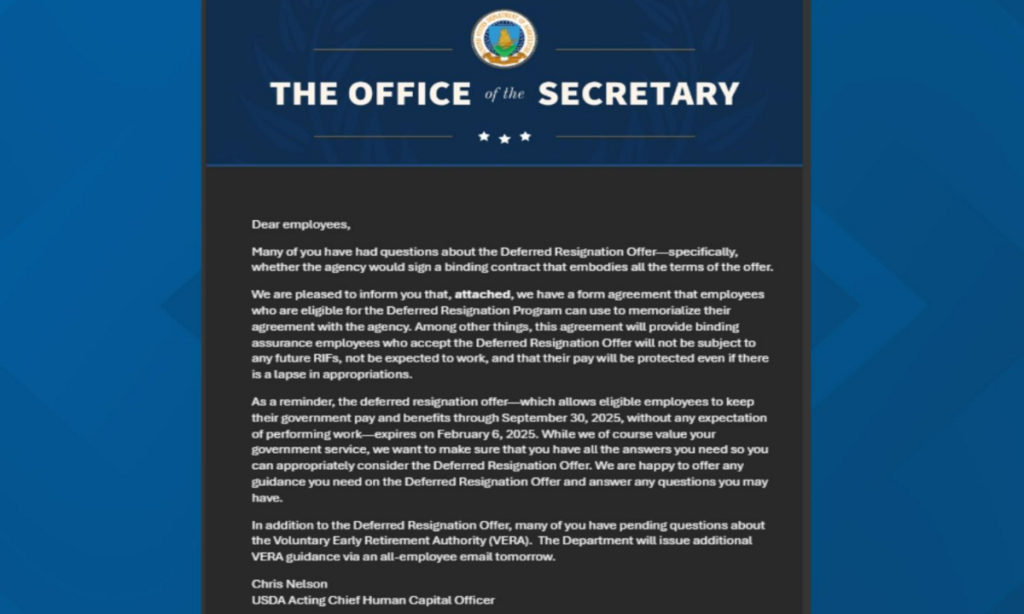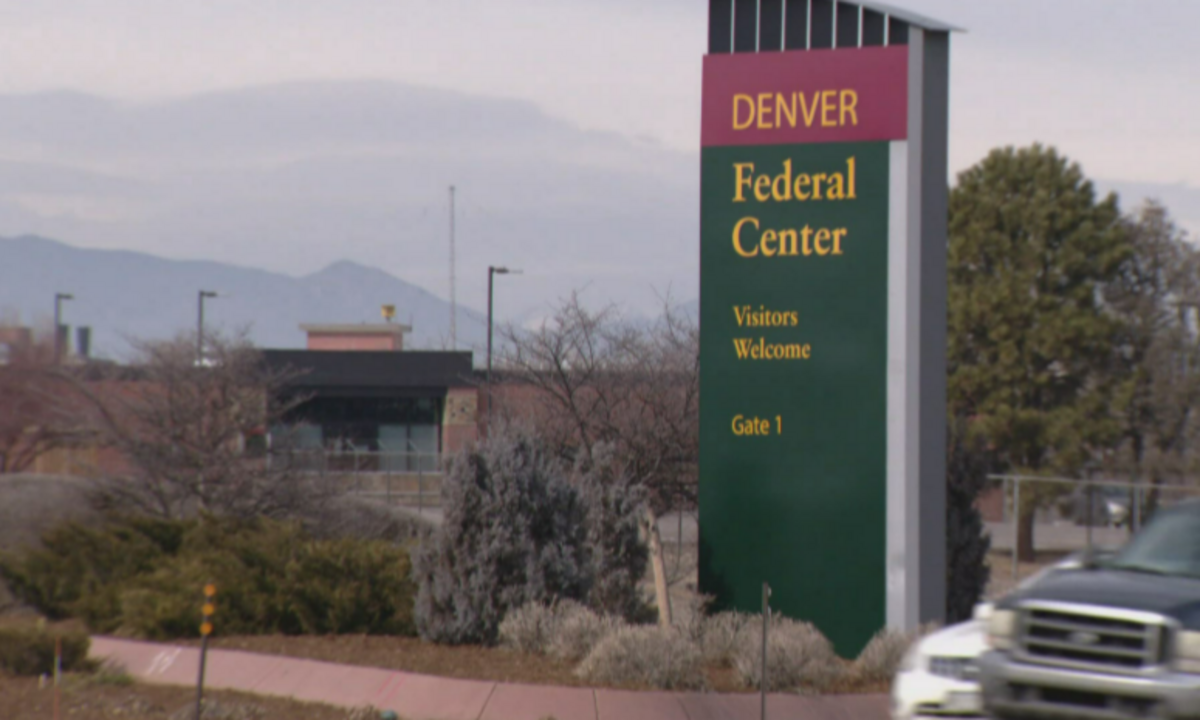Thousands of Federal Workers in Colorado are facing a critical decision as they have been given a deadline to resign voluntarily.
The move comes as part of a government downsizing initiative led by President Donald Trump and Elon Musk, who have pledged to reduce the size of federal agencies and cut government spending.
The Denver Federal Center in Lakewood, Colorado, which houses over 6,000 Federal Workers across 26 government agencies, is at the center of this shake-up. Federal workers have received emails over the past few days offering them the opportunity to resign. Those who accept will receive eight months of paid administrative leave and will be exempt from future workforce reductions.
The deadline to accept this offer is Thursday, and employees are now weighing their options, unsure of what the future holds for their careers and the agencies they serve.
Local Leaders Express Concern Over Federal Workers Reduction
The resignation push has sparked concerns among local leaders, who fear the potential economic and social impact of losing thousands of federal jobs. Lakewood Mayor Wendi Strom issued a statement emphasizing that the Denver Federal Center is critically important to the local and regional economy.
“These dedicated public servants conduct work that directly affects the safety and welfare of the American people. Any workforce changes must involve a well-planned process with local input,” Strom said.
Local businesses that depend on federal employees as customers are also worried. If a significant number of workers resign or lose their jobs, it could affect spending in the local economy, leading to a ripple effect on housing, retail, and other industries in the region.
Federal Employees Divided Over Resignation Offer
Among federal employees, reactions are mixed. Some view the resignation offer as a financial cushion that allows them to transition to other opportunities, while others fear it is the first step in a broader plan to dismantle key government agencies.

One government employee, who spoke anonymously, said:
“I don’t know if I should take the resignation package or wait and see what happens. The uncertainty is stressful, and many of my colleagues feel the same way.”
Another employee said they worry about losing long-term job security, especially since the private job market remains competitive.
Agencies Face Operational Disruptions
Apart from the Denver Federal Center, other government facilities in Colorado are also feeling the impact of these changes.
The National Renewable Energy Laboratory (NREL), which employs over 3,000 people, has paused all press releases, social media activity, and scientific journal submissions.
The University of Colorado has set up a special webpage to address concerns from staff and students about potential funding cuts to research grants.
Internships and hiring freezes have already started affecting students, with reports of rescinded job offers at federal agencies such as the Department of Justice.
What Happens Next?
With the resignation deadline approaching, the future remains uncertain. If a large number of Federal Workers accept the offer, government operations may be disrupted, leading to potential delays in federal services.
The Trump administration, along with Musk’s Department of Government Efficiency, claims that the downsizing efforts are aimed at making government agencies leaner, more efficient, and less dependent on taxpayer money. However, critics argue that this could weaken federal agencies and limit public services.
As this situation unfolds, federal employees, local leaders, and economists will closely monitor the impact of this mass resignation push and whether it signals larger changes to government employment nationwide.
Disclaimer—Our team has checked this article to ensure its accuracy and eliminate any misinformation. We are committed to providing clear and reliable information for our readers.


